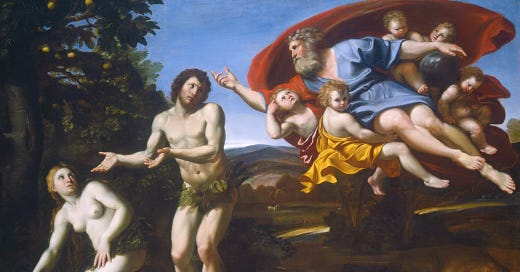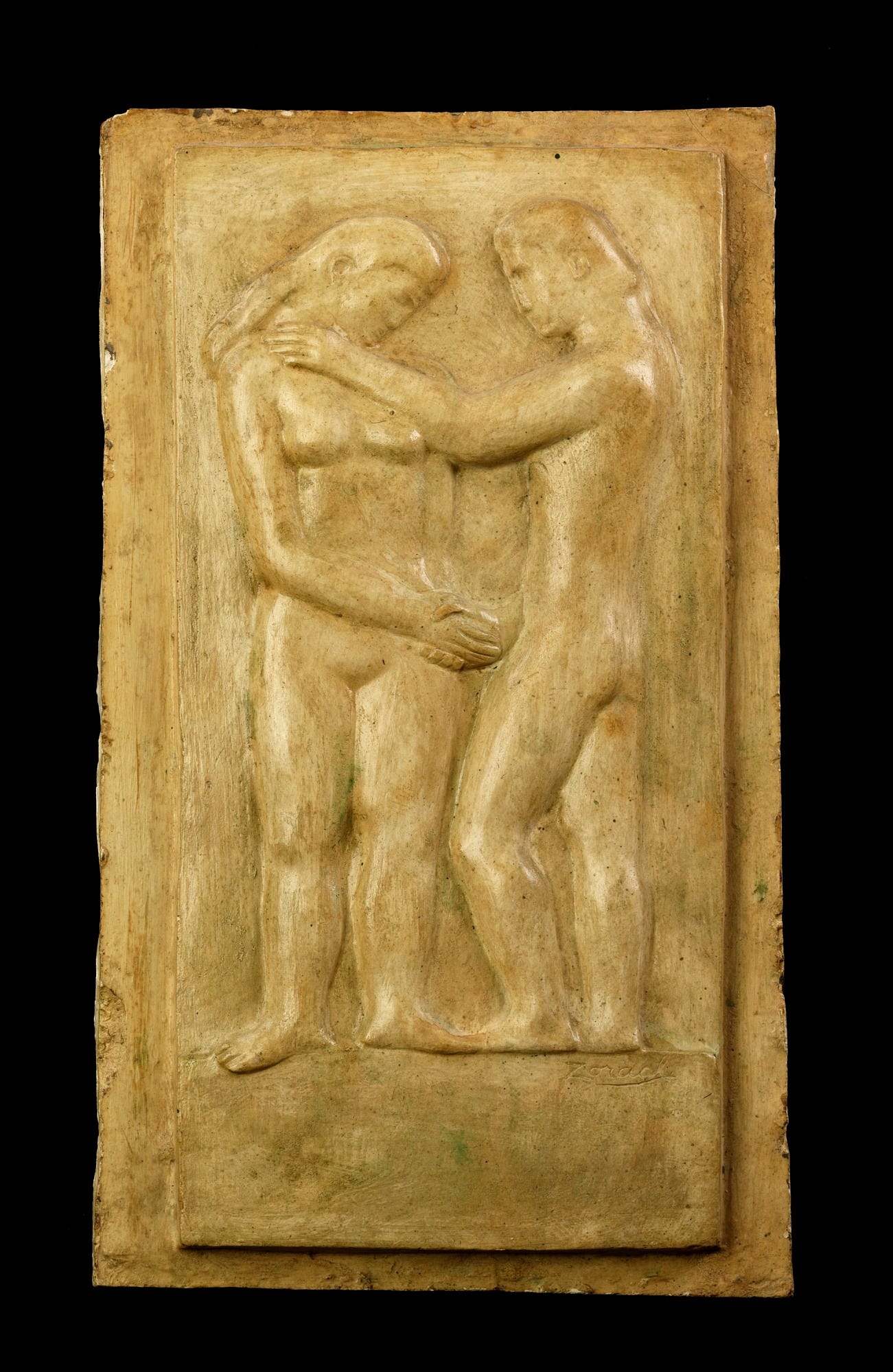Hello, Holy Ghost Stories family. Today part 10 of the Creation series is live: “Eve.”
A couple of things I’m fascinated by:
A Journey of Longing
As I suspect you well know, Yahweh is no haphazard operator. Every act is thoughtful, every choice brims with intention. Consider, then, the order of events picking up in Genesis 2:7—
After the animals, God creates Adam.
God creates the Garden of Eden and commissions Adam to cultivate it.
God says “It is not good for the man to be alone; I will make him a helper suitable for him.”
God brings the animals and birds to Adam and has him name them.
“…But for Adam there was not found a helper suitable for him.”
God creates Eve.
Why not create Eve alongside Adam at #1 in the above timeline? Or why not create Eve as soon as the “It is not good” declaration is made? Why bring all of the animals to Adam, essentially leading him on a partner search that’s doomed for failure?
I think the answer’s simple: to create in Adam a sense of longing. To alert him (and not just intellectually, but emotionally) to his need for a certain kind of companionship. To make sure that, when Eve arrives on the scene, Adam appreciates her peerless value.
I’m confident there are times Yahweh has led me on journeys of longing for similar reasons. I think He loves it when we cherish His gifts, and I think these divinely orchestrated journeys (painful as they sometimes are) help us not to take those gifts for granted.
Loneliness, the First Evil
Reading Genesis 1-2 in its entirety, you can’t help but notice the glaring anomaly of 2:18—“It is not good for the man to be alone.” Up to this point in the story, the “and God saw that it was good” refrain has repeated 6 times. Suddenly, something is “not good.” Once that something is rectified, the seventh refrain sounds—but this time it’s enhanced: “And God saw all that He had made, and behold, it was very good.”
(In case you missed it, I think Adam’s loneliness might have been preceded by a similar—albeit completely different, of course—kind of ‘loneliness’ in Yahweh. One difference, perhaps is this: Adam longed for something he lacked; Yahweh had a suprlus He longed to share.)
God Gets Personal
It’s interesting to me that throughout Genesis 1, only the more impersonal word “God” is used. It’s not until Genesis 2 that we see the name “Yahweh” appear (“LORD” in most translations)—and it appears no less than 11 times. I wonder if this has to do with the shift in Genesis 2 to humanity’s arrival, and reflects Yahweh’s desire for a relationship with mankind that transcends His relationship with the rest of creation.
Eve in Art—It’s Lacking
It frustrates me to no end. Depictions of Eve in classical art are entirely lopsided, focusing almost exclusively on her temptation and sin. Yes, I’m well aware of this part of her story, but what about her creation? What about her identity as the Mother of All Living? What about her emerging as Yahweh’s prototypical expression of womankind? What about the long-awaited partnership she enables? What about Adam’s poetic affection for her?
Humanity’s apparent response: What about that sin, though?
*Insert eye roll*
I am not downplaying the seriousness of sin. I am, however, calling us to stop robbing Genesis 1 and 2 of their beauty and wonder and (so much of their) power by constantly fast-forwarding to Genesis 3 and the Fall. Can we not?
I’ve combed the Met, the Smithsonian, the National Gallery, and the Louvre; paintings of Eve without a snake or an apple or some depiction of her sin and banishment are almost nonexistent.
I have thoughts about what all of this means, but for now let’s just leave it at this: I would like more art exploring the rest of Eve’s story. The grace she received before (and after) the Fall.
Perhaps this episode of HGS can be a small part of that.
Oh—I did come across this piece in the Smithsonian’s collection; a welcome respite from the predominant sin-centric fare. Thank you, William Zorach.
Listen to “The Creation, part 10: Eve”
Without further ado, here’s Episode 10. I hope it gives you eeyes to see your Creator afresh.
LISTEN ON: APPLE PODCASTS | SPOTIFY | AUDIBLE | WEB
A Way to Say Thanks
Ratings/reviews are huge social proof in the podcast world—they help folks decide whether a show is worth listening to. If you’re enjoying this series, would you consider leaving a quick review over on Apple Podcasts or Spotify?
2 Cool Things
The Lore of the World - I love this. Such a great premise and so deftly executed—Erik Hoel writes as if he’s explaining things to a child, but with a great awareness of life’s strangeness and not a small amount of wonder. Here’s the intro:
When you become a new parent, you must re-explain the world, and therefore see it afresh yourself.
A child starts with only ancestral memories of archetypes: mother, air, warmth, danger. But none of the specifics. For them, life is like beginning to read some grand fantasy trilogy, one filled with lore and histories and intricate maps.
Yet the lore of our world is far grander, because everything here is real. Stars are real. Money is real. Brazil is real. And it is a parent’s job to tell the lore of this world, and help the child fill up their codex of reality one entry at a time.
Here are a few of the thousands of entries they must make.
And here’s a bit of his entry on ‘teeth’:
These innocuous things, which make up your smile, and so allow you to show happiness, will actually cause you great pain. In two ways. The first is that to gain teeth is to become independent, for they sever your need of mother’s milk, and to be independent is a type of pain. The second is quite literal, in that they must burst through your gums, a slow tectonic event like a rising mountain range. The pain will keep you awake at night. One day those baby teeth fall out, only for the process to repeat. Secretly, a new set of adult teeth will have been formed in your jaw via mineral deposition; it is as if your body is the earth’s mantle, and can secrete a kind of white rock.
I hope this becomes a series of his. Makes me want to join Hoel and add to the inevitably vast Compendium of Curiosities we might (should?) create. Here’s to wonder! And to our God’s ineffable imagination!! 🥂
Please, Stop Playing Music Everywhere - A relatively trivial complaint, but a passionate one.
Why are we so routinely confronted with music completely unbefitting of our circumstances? I love music. I even quite like Dua Lipa. But there is, as they say, a time and a place.
Yes. I have felt this so deeply. Such a great piece from
.That’s the latest! I hope you’re blessed by today’s installment of the Creation series.
Gratefully,
Justin







Thank you, Justin, for the piece about Eve. It gives me a couple of sermon ideas. Great!